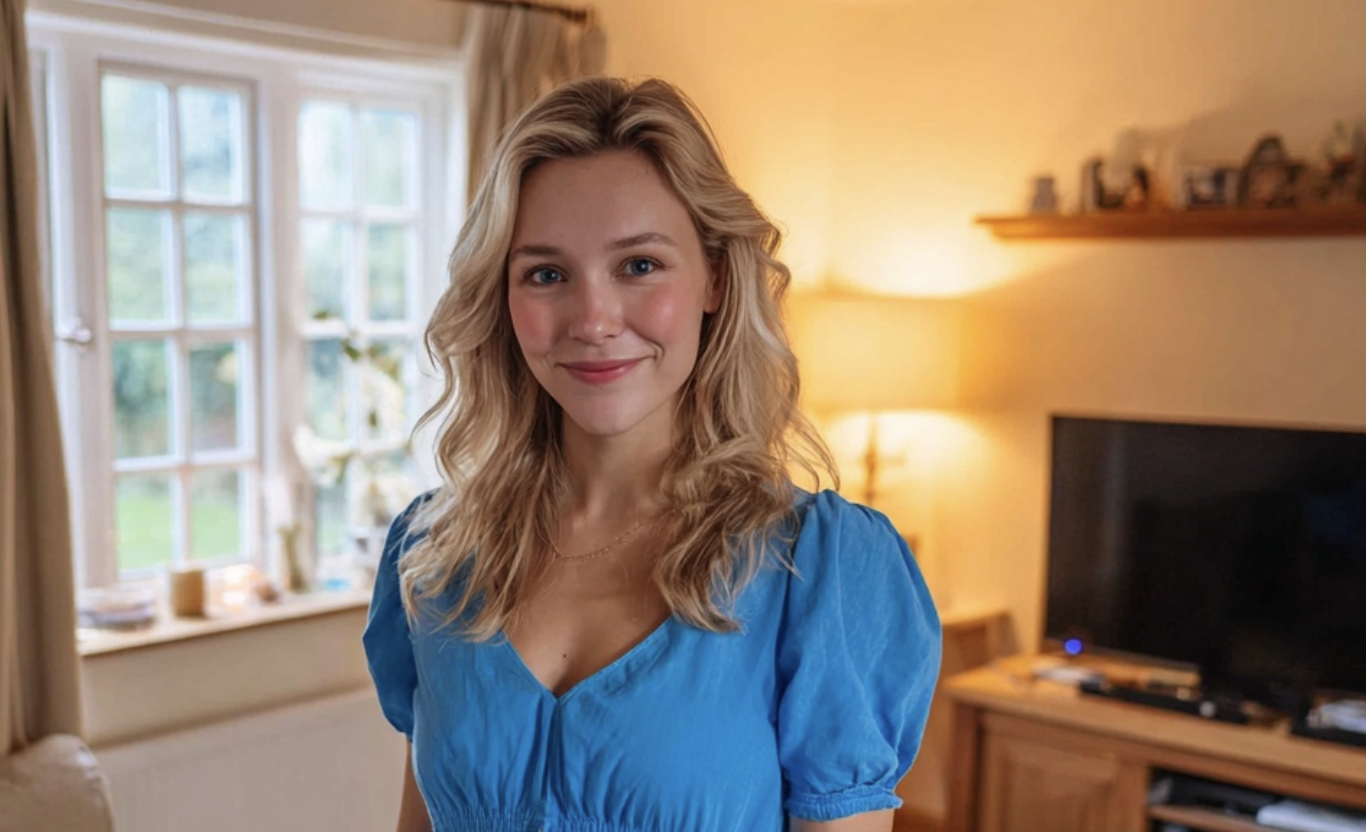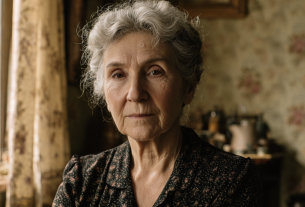Olesya frowned at the phone screen. A message from Vadim was short: “Filed for divorce. Take the kids and move out by Friday.”
“What? Divorce?” She almost dropped her cup of tea.
The phone rang immediately. Her mother-in-law’s name lit up on the screen.
“Hello, Tamara Petrovna?”
“Olesya, you already know, right?” The voice sounded almost cheerful. “Vadik’s made his decision. The apartment is ours, you understand, we bought it before you got married. He re-registered the car to himself last week too.”
Olesya sat on the edge of the chair. One thought spun in her head: “Last week? He planned all this in advance?”
“And the kids? Where will we go?”
“That’s your problem,” her mother-in-law snapped. “Vadik said he’ll pay child support. Minimum, of course. And not right now—when the court orders it.”
“But I—”
“Oh, I have another call. Bye!” Tamara Petrovna hung up.
Olesya glanced at the clock—soon Danila and Katya would be back from school. What would she tell them? How to explain that they had to pack up and leave the apartment where they’d lived for the last seven years?
The phone buzzed again. A text from her sister-in-law: “Long overdue. You never appreciated Vadik. Always walking around dissatisfied.”
“I’m dissatisfied?” Olesya almost threw the phone. “I worked two jobs while your brother was ‘finding himself’?”
They packed within a day. Olesya found a room in a communal apartment on the outskirts. The landlady, a plump woman with tired eyes, just looked at the kids and waved her hand:
“Move in. First and last month up front.”
The children were silent the whole way to their new place. Katya, nine, held her brother’s hand. Danila, twelve, carried his backpack, frowning like an adult.
“Mom, does Dad know where we’re going?” he asked when they stood together in the tiny room with peeling wallpaper.
“No. And he won’t know unless he asks.”
“And Grandma?” Katya squeaked softly.
“We won’t call Grandma either.”
That evening, after putting the kids on the fold-out couch, Olesya sat by the window. A neighbor snored loudly through the wall. Somewhere below, a drunken company was arguing in the yard.
“And now what?” she asked the darkness.
At work, they didn’t keep Olesya. “Staff reductions,” her boss explained dryly, avoiding her eyes. She knew—Vadim had pulled strings. He had connections in town.
A week after moving, her mother-in-law called.
“Olesya, how are you there? I’m worried about the grandkids.”
“Wonderful, Tamara Petrovna. Just fantastic.”
“Do you have money? Maybe…” Tamara paused, “maybe call Vadik? Make up? Why put the kids through this?”
“Thanks, no need. We’ll manage.”
“Oh, don’t be proud! How long will you last without us? A month? Two? Vadik says you can’t even hammer a nail in a wall.”
Olesya closed her eyes. How many times in ten years of marriage had she heard those phrases? “Without us you’re nothing.” “We dragged you out of the mud.” “Say thanks Vadik married you.”
“You know, Tamara Petrovna, your son is right. I don’t know a lot. But I’ll learn.”
That evening, after the kids fell asleep, there was a quiet knock at the door.
“Neighbor!” An elderly woman from the next floor stood on the threshold. “I’m Nina Vasilievna. Heard you have troubles. Want to have some tea?”
Over tea, Nina Vasilievna told her about the benefits Olesya could apply for. About free activities at the community center. About where to look for side jobs.
“My daughter went through the same. She managed. And you will too.”
That night Olesya didn’t sleep. She wrote ads: “Apartment cleaning.” “Dog walking.” “Minor clothing repairs.” The phone was silent. Her husband’s family didn’t call. But she no longer waited for their calls.
Three days later, Olesya’s phone rang. First order—cleaning a two-bedroom apartment across town.
“Two hours of work,” the woman on the line said. “Five hundred rubles.”
“Too little,” Olesya surprised herself with her boldness. “Seven hundred.”
“Six hundred. Not a ruble more.”
On the way home, Olesya bought bread, pasta, and some minced meat.
“Dan, Katya, come here,” she called as she entered the room. “We’re going to learn to cook.”
“Dad said you cook badly,” Danila muttered, stirring the pasta.
“Dad said a lot of things,” Olesya ruffled her son’s hair. “Now we’ll all learn new things together.”
Nina Vasilievna helped her file for benefits and suggested where to enroll the kids in free clubs.
“Dance and chess at the community center,” she said. “Katya’s flexible, and Dan’s smart. Let them join, you can work during that time.”
In the evenings, Olesya sewed. She dragged an old sewing machine from the dumpster and fixed it. Her first orders were curtains for neighbors.
“You’ve got golden hands,” Nina Vasilievna praised. “Just make sure you charge enough. Don’t undersell yourself.”
Meanwhile, at her ex-husband’s house, conversations were buzzing.
“She’ll last a month at best,” Tamara Petrovna declared, pouring tea for her daughter and Vadim. “Where can she go with two kids? No skills, no decent education.”
“Think she’ll crawl back?” Vadim’s sister Lena snorted.
“Where else? Besides…” the mother-in-law looked meaningfully at her son, “you’re not rushing with child support.”
“We’re not officially divorced yet,” Vadim grumbled. “And things are tough for me too. Katya’s leaving the salon, the business is shaky.”
“Your mistress?” Lena sneered. “The one you wrecked the family for?”
“I didn’t wreck it, I freed myself,” Vadim snapped. “Enough about Olesya. Finish your tea, let’s go to the new restaurant.”
On Saturday at the town market, Olesya sold her first handmade items—aprons and potholders. The kids helped. Katya carefully arranged the goods, Danila called out to customers.
“What a lovely family,” a well-groomed woman in her forties stopped at the stall. “And what’s this work?”
“Mine,” Olesya smiled shyly. “I sew in the evenings.”
“Very neat. Are you a professional seamstress?”
“No, self-taught.”
“Interesting…” The woman thoughtfully examined the aprons. “I’m Marina, the director of the sports school’s wife. We need someone with your skills. Come by Monday, let’s talk.”
At home, Olesya couldn’t sit still.
“Mom, why are you pacing?” Danila asked.
“I got offered a job! A real one!”
“Hooray!” Katya jumped. “Then we can buy new pencils?”
“And move out of here,” Olesya nodded. “If it works out.”
At the sports school, Olesya was welcomed warmly. The director, a tall man with a military bearing, explained:
“We need someone for two roles—cleaner and seamstress. To mend sports uniforms, sew numbers, sometimes costumes for performances.”
“I can handle it,” Olesya said firmly.
“I believe you,” Marina smiled. “Start next week.”
That evening Olesya cried for the first time in a long time. Not from grief—from relief.
“Nina Vasilievna, I’m doing it,” she whispered in her neighbor’s kitchen. “It’s really working!”
“What did you expect?” the elderly woman nodded. “You just weren’t given a chance before. Now fly, little bird!”
Her first paycheck came in cash—a clean fifteen thousand rubles. For her, it was a fortune.
“Let’s count,” she told the kids that evening, pouring the bills on the table. “How much for rent, how much for food, how much to save.”
“Can I get new sneakers?” Danila asked quietly. “My toe’s sticking out of the old ones.”
“Of course, son. And sandals for Katya. And also…” Olesya paused, “let’s look for an apartment? Tiny, but our own.”
A new apartment was found a week later—a one-bedroom on the fifth floor of a panel house. No renovation, peeling wallpaper, but theirs.
“Eight thousand a month,” the landlord rasped. “Plus utilities.”
“I’ll take it,” Olesya didn’t even haggle.
Nina Vasilievna helped with the move. Dragged over an old couch and two stools.
“My dowry for you,” she laughed. “You’ll settle in gradually.”
Things at the sports school went well. Olesya came early, cleaned classrooms and halls, then sat at the sewing machine. Uniforms, patches, small repairs. The director praised her work.
“You’re a real find, Olesya Igorevna,” he said. “Might even give you a bonus at the end of the quarter.”
One day, sorting through old performance costumes, Olesya suggested:
“Can I try a new design? I have ideas.”
Marina, the director’s wife, was intrigued:
“Show me sketches.”
That night, after putting the kids to bed, Olesya drew late into the night. In the morning, she brought Marina five designs.
“This is amazing!” Marina exclaimed. “Yury Mikhailovich, look what our seamstress came up with!”
Two weeks later, the school allocated funds for new costumes. Olesya was officially named a designer. Her salary increased by five thousand.
And in town, rumors spread.
“Did you hear, Vadik’s ex got the kids into the fancy sports school?” women whispered in the supermarket line.
“And she works there too. They say the director values her.”
“And how do they live?”
“Rent an apartment. A normal one, not some hole.”
The gossip reached Vadim and his family. At Sunday lunch, the topic came up unexpectedly.
“Heard your ex has settled well,” Tamara Petrovna drawled, serving salad to her son. “Works at the sports school, kids go there too.”
“No way,” Vadim grimaced. “Probably just mops floors.”
“Not only that,” Lena interjected. “My friend saw her at a parent meeting. Olesya sews school uniforms to order. Says there’s a line for her.”
“What line?” Vadim stopped chewing. “She didn’t know anything!”
“Then she learned,” Lena shrugged. “And the kids look good—clean, neat. You wouldn’t say their mom’s raising them alone.”
“And she’s not even asking for money?” Tamara pursed her lips.
“Imagine that, no,” Lena smirked. “Maybe she wasn’t as useless as you said.”
Vadim shoved his plate away with a clatter.
“I gotta go. Business.”
At home, Vadim couldn’t sit still. His sister’s words kept spinning in his head: “Not as useless.” And he really had thought that. Ten years considering his wife a loser, a burden. And she went and made it. Without him.
His phone was ringing off the hook—his ex-mother-in-law:
“Vadim, when will you send child support? Have some conscience!”
She used to stay silent. But now she exploded. Apparently, Olesya had shared her successes.
By evening, he couldn’t stand it and dialed his ex-wife’s number.
“Hello?” Olesya’s voice was calm.
“Hi. How are the kids?”
“Fine. Danila has a competition soon. Katya’s doing dance.”
“I heard you… settled well,” the words were hard to force out.
“Yes, thanks,” a hint of irony slipped into Olesya’s voice. “We’re managing.”
“Maybe I could come by? See the kids?”
Pause. Long.
“No, Vadim. Not now.”
“But I’m their father!” he burst out.
“The one who didn’t care how they lived for two months,” Olesya cut him off. “Sorry, I have to go. We have costume fittings.”
Three months after the move, Olesya’s life stabilized. She was officially promoted to fashion designer at the sports school. In her spare time, she sewed school uniforms on commission. Her clientele grew steadily.
“Mom, maybe you need an assistant?” Danila asked once, eyeing the pile of patterns. “You can’t keep up.”
“I’ll manage,” Olesya ruffled his hair. “But we’ll go to a holiday resort for New Year’s. I’ve already looked at tickets.”
“Really?” Katya clapped. “Will there be snow?”
“There will. And sleds, and an ice rink.”
That evening her mother-in-law called.
“Olesya, how are you?” Her voice sounded unusually gentle.
“Fine, Tamara Petrovna.”
“Listen… New Year’s is soon. Maybe let the kids visit us? Grandpa and I miss them.”
Olesya smirked. Three months ago this woman threw them out. Now she “misses” them.
“Sorry, we already have plans. We’re going away.”
“Where?” the mother-in-law was surprised.
“To a resort. Skiing and skating.”
Pause.
“Olesya, maybe make peace? Vadik says he overreacted. Maybe give it another try?”
“No, Tamara Petrovna. That’s in the past.”
“But how? Kids without a father…”
“And where was this father when they had nothing to eat?” Olesya gripped the phone. “When we slept on the floor in a communal flat?”
“Well, everyone makes mistakes…”
“I agree. My mistake was letting you treat me as worthless. I won’t repeat it.”
The next day by the school, Olesya got a surprise—Vadim with a huge bouquet.
“Can we talk?” he held out the roses.
“Why?” Olesya didn’t take the bouquet.
“I realized everything. I was wrong. Maybe we can start over?”
“Vadim,” Olesya looked him straight in the eye, “when you kicked us out, I thought I’d die of grief and fear. But then I realized—it was the best thing that ever happened to me.”
“What?”
“For ten years you convinced me I was worthless. That I’d be lost without you. And you know what I’ve realized these past months? I can do anything. Work, raise kids, make plans. And I don’t need someone next to me who doesn’t value that.”
Vadim lowered the bouquet awkwardly.
“And the kids? They need a father…”
“They need a reliable father. You want to help—pay child support on time. You want to see them—we’ll set a schedule. But we can’t go back.”
At home, the kids had a surprise waiting—a new laptop.
“This is for your studies,” Olesya said. “And I’ve enrolled in fashion design courses. We’ll keep moving forward.”
“Mom, are you really never going back to Dad?” Katya asked that evening. “Grandma called, said Dad misses you.”
“No, sweetie. We’ll live our own life. Dad can visit if he wants.”
“I’m glad,” Danila suddenly said. “I mean… before, there was always yelling at home. Now it’s good. Peaceful.”
Olesya hugged her son.
“And it’ll get even better. I promise.”
In spring, Olesya opened a small atelier. Took a loan, bought equipment. Nina Vasilievna helped with the kids when Olesya stayed late.
“You’re amazing, girl,” the neighbor said. “You climbed out of such a pit.”
“You know, Nina Vasilievna,” Olesya smiled, locking up after work, “sometimes you have to lose everything to understand what you’re capable of.”
That evening, walking home, she thought about the upcoming recital at the sports school. Her costume designs had won an award at the regional contest. The director talked about expanding their collaboration.
At home, kids, homework, and an unfinished dress for Katya were waiting. An ordinary evening of an ordinary family. But now Olesya knew for sure—they would make it. Together.
Because sometimes the end of an old life is just the beginning of a new one. A better one.


